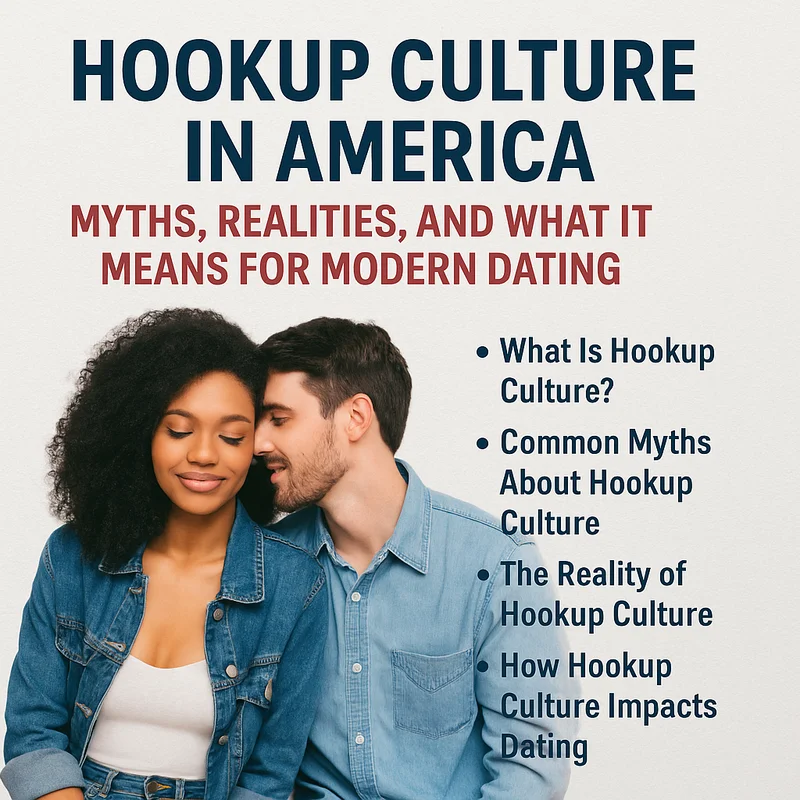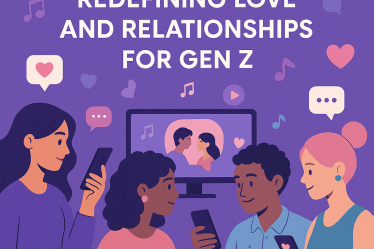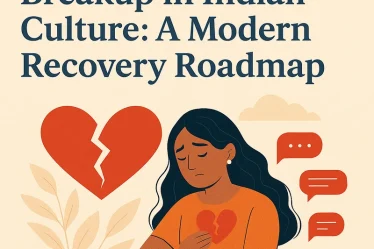
In today’s swipe-right society, it’s easy to assume that hookup culture dominates American dating life. Movies glamorize it, apps facilitate it, and memes normalize it. But how much of what we believe about hookup culture is actually true?
This article breaks down the myths and realities of hookup culture in America—and explores what it really means for people navigating modern relationships. Whether you’re single and curious, dating casually, or wondering how this culture impacts long-term love, here’s what you need to know.
What Is Hookup Culture? Defining the Trend
Hookup culture refers to casual sexual encounters that typically occur outside of committed relationships. These interactions can be spontaneous or planned, and they don’t always lead to emotional intimacy.
While hookups have existed for decades, the term “hookup culture” became mainstream in the 2000s with the rise of college party scenes and digital dating. Today, dating apps have made casual connections more accessible than ever, blurring the lines between dating and hooking up.
There’s no one-size-fits-all definition. For some, a hookup is a kiss at a party; for others, it means sex without commitment. And that ambiguity is part of what makes the culture so complex.
Common Myths About Hookup Culture
Let’s bust some of the most persistent misconceptions.
Myth #1: Everyone is hooking up all the time.
Despite pop culture’s portrayal, research shows that only a minority of people engage in frequent hookups. According to a study by the American Psychological Association, the majority of young adults still value emotional connection and often pursue long-term relationships.
Myth #2: Hookup culture is only for college students.
While much of the research focuses on college campuses, hookup culture spans age groups—from Gen Z to older adults exploring dating post-divorce or through apps.
Myth #3: Hookups always lead to emotional detachment.
Some people report emotional disconnection or regret after casual encounters, but others find them empowering or simply fun. It all depends on the individual’s expectations, values, and communication.
Myth #4: Dating apps are just for sex.
While dating apps can facilitate hookups, many users seek serious relationships. A 2022 Pew Research study found that nearly half of app users were looking for a committed partner.
The Reality of Hookup Culture in America
Hookup culture is neither inherently toxic nor universally fulfilling—it’s complicated. Here are some insights into what it actually looks like:
- Who’s hooking up? College students, young professionals, divorcees, and even seniors. Hookup culture isn’t limited by age.
- Why do people hook up? Motivations range from curiosity and convenience to loneliness or peer pressure.
- How do people feel afterward? Mixed. Some feel satisfaction and liberation; others experience confusion, regret, or emotional burnout.
Statistics from the Kinsey Institute show that nearly 60% of young adults have engaged in at least one casual sexual encounter, but only a small percentage report doing so frequently.
How Hookup Culture Impacts Modern Dating
In a world where sex can happen before the first date, many singles struggle with unclear boundaries and mismatched intentions.
Challenges include:
- Communication gaps: Are we dating, hooking up, or in a situationship?
- Emotional confusion: Casual sex can sometimes lead to unreciprocated feelings.
- Fear of vulnerability: Many hesitate to show emotions in fear of being labeled “clingy.”
On the flip side, some daters appreciate the freedom to explore connections without rushing into exclusivity. For many, hookup culture offers an alternative to traditional courtship—but it’s not without emotional risks.
Is Hookup Culture Good or Bad? A Nuanced Perspective
The truth is: hookup culture is neither universally harmful nor universally empowering. Its effects depend on how people engage with it and whether they’re honest with themselves and others.
Pros of hookup culture:
- Encourages sexual exploration and autonomy.
- Breaks down stigmas around sexuality and gender roles.
- Offers flexible ways to connect without pressure.
Cons of hookup culture:
- Can lead to emotional burnout or confusion.
- Often lacks the clear communication necessary for healthy encounters.
- May set unrealistic expectations for future relationships.
It’s not about whether hookups are “good” or “bad”—it’s about being self-aware, emotionally intelligent, and communicative.
What Hookup Culture Means for the Future of Relationships
As society evolves, so do our definitions of connection. Hookup culture is influencing new norms for dating, such as:
- Delayed exclusivity: Sex often happens before serious commitment.
- More diverse relationship models: From open relationships to polyamory, people are exploring beyond monogamy.
- Emotional caution: Gen Z daters, while open-minded, are also more guarded—prioritizing mental health and boundaries.
So, where does that leave us? It’s clear that traditional dating rules are shifting. But amid all the change, the essentials—trust, communication, mutual respect—still matter more than ever.
Conclusion: Making Sense of Hookup Culture in a Modern World
Hookup culture in America is complex. It reflects a society that’s more open to sexual freedom—but also grappling with emotional uncertainty and digital overload.
If you’re dating today, it helps to ask yourself:
- What are my boundaries?
- What am I looking for—fun, connection, commitment?
- Am I communicating that clearly?
Whether you’re down for casual fun or searching for something serious, success in modern dating means knowing your needs and respecting others’. Hookup culture isn’t going away—but how we engage with it is entirely up to us.
FAQs
Q1. Can hookups turn into serious relationships?
Yes, but it depends on clear communication and mutual intentions.
Q2. Is hookup culture emotionally unhealthy?
Not necessarily—it depends on how it’s approached. Honesty and boundaries are key.
Q3. How do I know if I’m okay with casual sex?
Ask yourself how you feel before and after. If it brings more stress than joy, reconsider your approach.



